Dr. Oz's 28-Day Plan to Renew Your Body, Mind and Soul
By Dr. Mehmet Oz
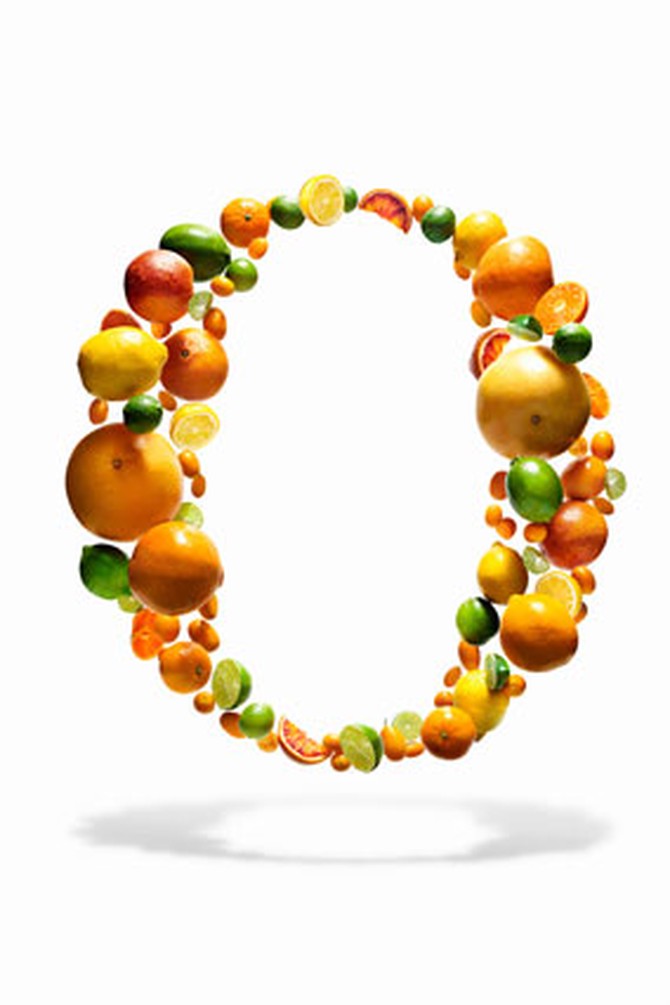
Photo: Nigel Cox
As you kick off 2012, forget the grand promises (I'm going to run 21 miles a week! eat spinach every day! quit dessert!)—and commit instead to starting small. Mehmet Oz, MD, has assembled a list of 28 meaningful yet manageable steps you can take toward a longer, fuller life. Make one of these changes every day, and before the month is up you'll feel like a whole new you.
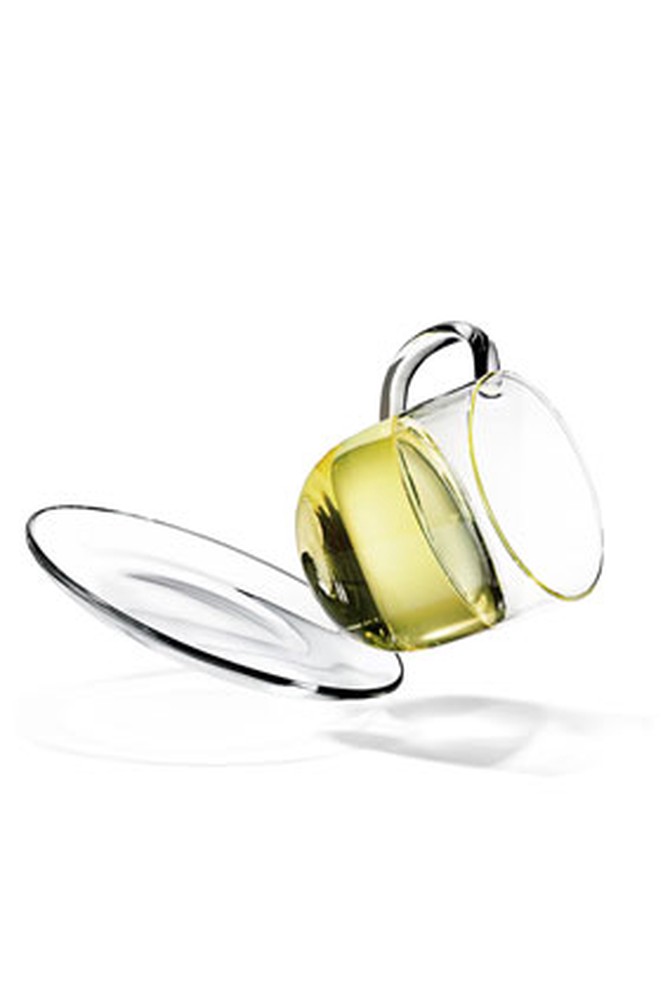
Photo: Nigel Cox
Day 1: Go Green!
As in green tea. Because these tea leaves aren't fermented like black and oolong teas, they contain the highest concentration of powerful antioxidants called catechins. Studies have shown that drinking green tea is associated with a lower risk for some cancers. Other research suggests that downing multiple cups daily can lower "bad" (LDL) cholesterol and promote weight loss. If the astringent taste most of us are familiar with is a turnoff, turn the page for an assortment of delicious green tea blends.
Dr. Oz's 6 favorite green teas
Dr. Oz's 6 favorite green teas
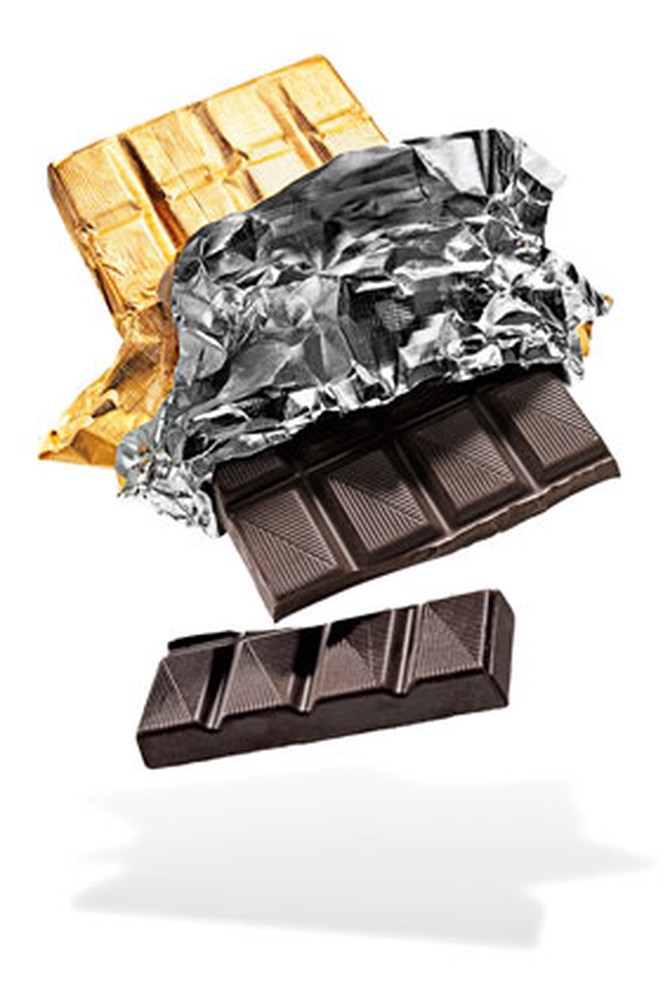
Photo: Nigel Cox
Day 2: Indulge in Dark Chocolate
Here's an eye-opener: For years studies have shown that flavonols, the antioxidant-rich compounds found in cocoa, improve circulation. Now new research indicates that because those compounds increase blood flow to the brain, they may also help you see more clearly. Two and a half hours after consuming 720 milligrams of flavonols (the amount in about one ounce of dark chocolate), study participants' visual function and ability to detect motion direction improved dramatically.
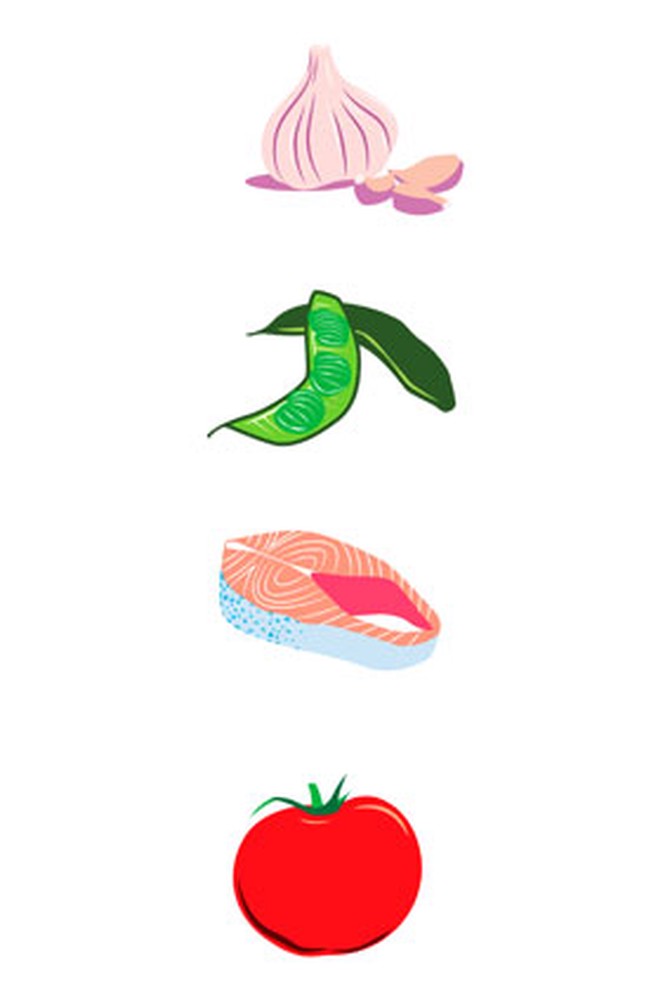
Illustration: mckbillo
Day 3: Cook for Your Heart
Certain foods do wonders for your veins and arteries, promoting blood flow throughout your body. To make a meal packed with heart-healthy nutrients, start with these four ingredients.
Wild Salmon
It's full of omega-3s, your arterial system's handymen. They lower triglycerides (which contribute to plaque buildup) and can make platelets less sticky (to reduce clotting).
Tomatoes
Hypertension patients who consumed tomato extract saw at least a ten-point drop in their systolic pressure and four-point fall in their diastolic pressure.
Garlic
The pungent clove is thought to protect against atherosclerosis (hardening of the arteries), a condition that can lead to heart disease and stroke.
Lima Beans
One cup contains about 30 percent of the recommended dietary allowance of magnesium, a mineral that triggers vasodilation, easing the strain on your heart.

Photo: Levi Brown
Day 4: Forgive Someone
Studies show that forgiveness can lower blood pressure and heart rate and reduce depression, anxiety, and anger. I think Oprah articulated the secret to releasing grudges when she said, "Forgiveness is letting go of the hope that the past can be changed."

Photo: Thinkstock
Day 5: Memorize a Poem
Give yourself a cognitive boost—and invigorate your spirit—by committing a bit of poetry to memory. For starters:
The way of love is not
A subtle argument.
The door there
Is devastation.
Birds make great sky-circles
Of their freedom. How do they learn that?
They fall, and falling,
They're given wings.
—Rumi
The way of love is not
A subtle argument.
The door there
Is devastation.
Birds make great sky-circles
Of their freedom. How do they learn that?
They fall, and falling,
They're given wings.
—Rumi
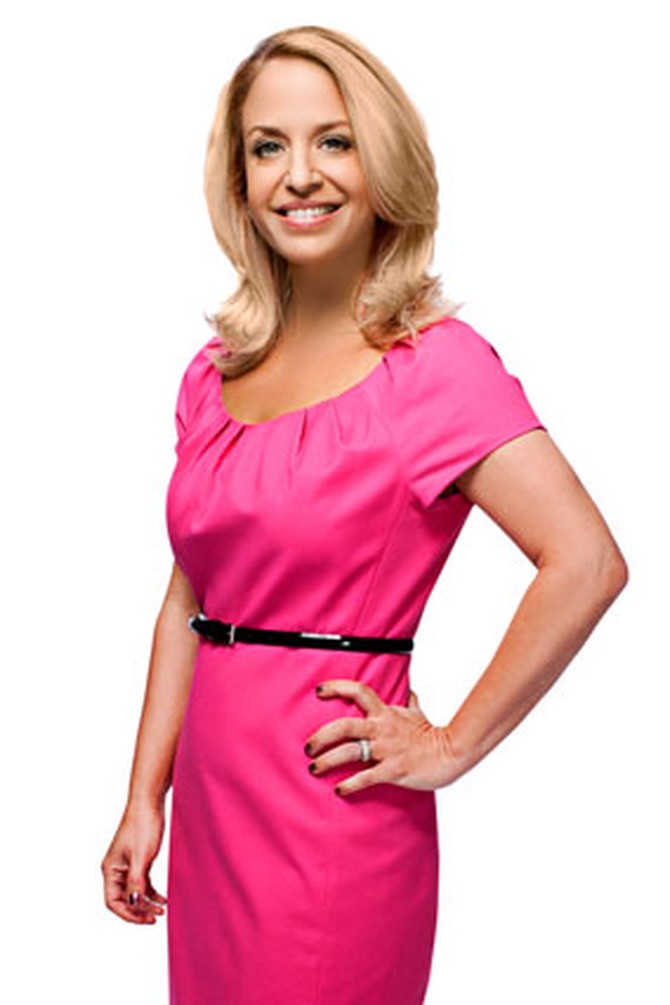
Photo: OWN: Oprah Winfrey Network
Day 6: Get Busy Getting Busy
Laura Berman, PhD, host of OWN's In the Bedroom, shares some advice on having much more of a great thing.
"Sex is not only beneficial for your relationship. People who enjoy it twice a week may get a boost to their immune system, according to a Wilkes University study. And women who are less satisfied sexually are more likely to have plaque buildup in their arteries. The most common roadblock people complain about is a busy schedule. Get around that by picking a time and date with your partner. The buildup will compensate for the lack of spontaneity. And remember: No partner doesn't mean no sex. This is about health and happiness, so don't be afraid to take care of yourself."
"Sex is not only beneficial for your relationship. People who enjoy it twice a week may get a boost to their immune system, according to a Wilkes University study. And women who are less satisfied sexually are more likely to have plaque buildup in their arteries. The most common roadblock people complain about is a busy schedule. Get around that by picking a time and date with your partner. The buildup will compensate for the lack of spontaneity. And remember: No partner doesn't mean no sex. This is about health and happiness, so don't be afraid to take care of yourself."
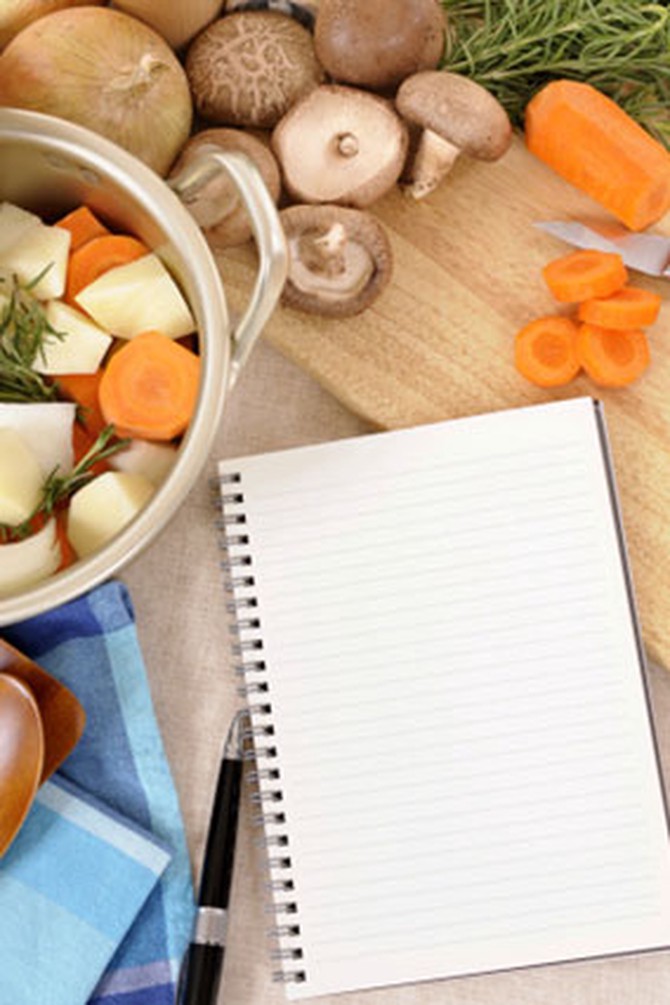
Photo: Thinkstock
Day 7: Write Every Bite, Scribble Every Nibble
Chips from your mate's plate, a granola bar from the vending machine—it's so easy to mindlessly munch. But people who track what they eat can lose twice as much weight as those who don't, one study showed. A notebook will do the trick, but if you need more bells and whistles, check out these sites:
PEERtrainer
Join one of thousands of goal-oriented teams (like Beachbody Challenge and Over 50!) to boost your drive and find support when you need it.
Lose It!
Straightforward and easy to customize, this app and site motivates with badges ("10 Pound Club") that you can share with friends who are members, too.
DailyBurn
Talk about convenient: The FoodScanner app ($.99) allows you to update your log by simply scanning an item's bar code. DailyBurn's database has more than 600,000 foods.
SparkPeople
Personalized diet plans help you tackle "SparkStreaks," small suggested daily goals like curbing late-night snacking.
PEERtrainer
Join one of thousands of goal-oriented teams (like Beachbody Challenge and Over 50!) to boost your drive and find support when you need it.
Lose It!
Straightforward and easy to customize, this app and site motivates with badges ("10 Pound Club") that you can share with friends who are members, too.
DailyBurn
Talk about convenient: The FoodScanner app ($.99) allows you to update your log by simply scanning an item's bar code. DailyBurn's database has more than 600,000 foods.
SparkPeople
Personalized diet plans help you tackle "SparkStreaks," small suggested daily goals like curbing late-night snacking.
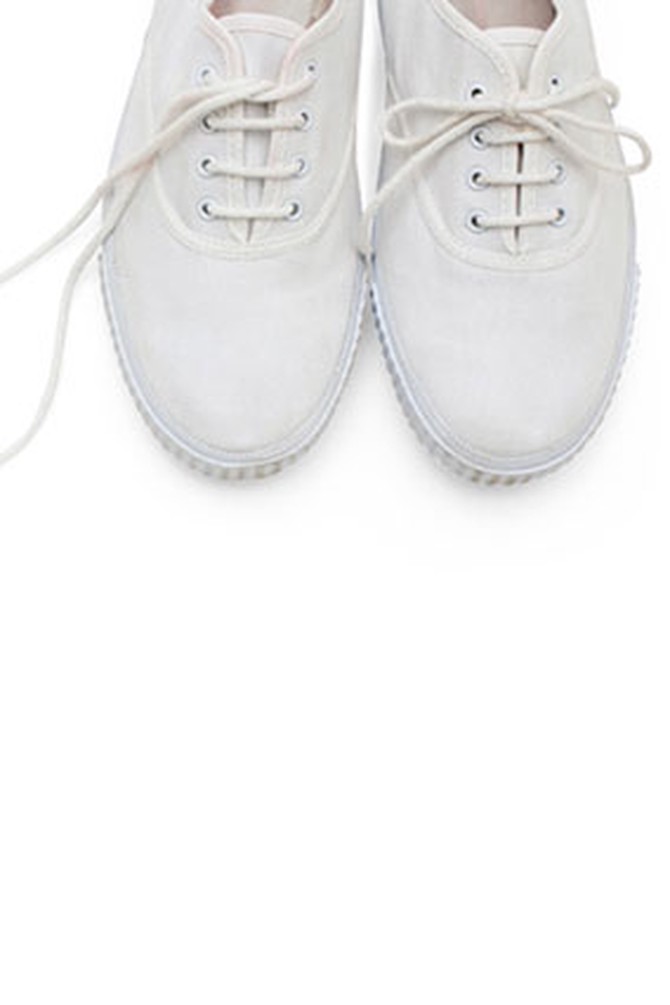
Photo: Nigel Cox
Day 8: Sweat, Even Just a Bit
You might be surprised how little exercise it takes to do a body good. Just a daily 30-minute walk at a brisk pace can keep you from gaining weight and reduce your risk of stroke and heart attack by 30 percent. (To gauge whether you're working hard enough, do the "talk test": You should be able to speak but not sing.) A walk will do your body image good, too. University of Florida researcher Heather Hausenblas, PhD, found that the simple act of exercise—whether hiking a mountain or strolling around the neighborhood—led subjects to rate their own appearance higher than before.

Photo: Getty Images
Day 9: Get More Sleep
Forget counting sheep. Busy people share their best tricks for catching z's.
"My sister, who's a chef, taught me how to make tea with dried chamomile flowers by letting them steep for an entire day. It's a powerful but natural sleeping aid. I always drink a cup before bed."
—Rosie Perez, actress
3 more celebrity secrets for stress-free slumber
"My sister, who's a chef, taught me how to make tea with dried chamomile flowers by letting them steep for an entire day. It's a powerful but natural sleeping aid. I always drink a cup before bed."
—Rosie Perez, actress
3 more celebrity secrets for stress-free slumber
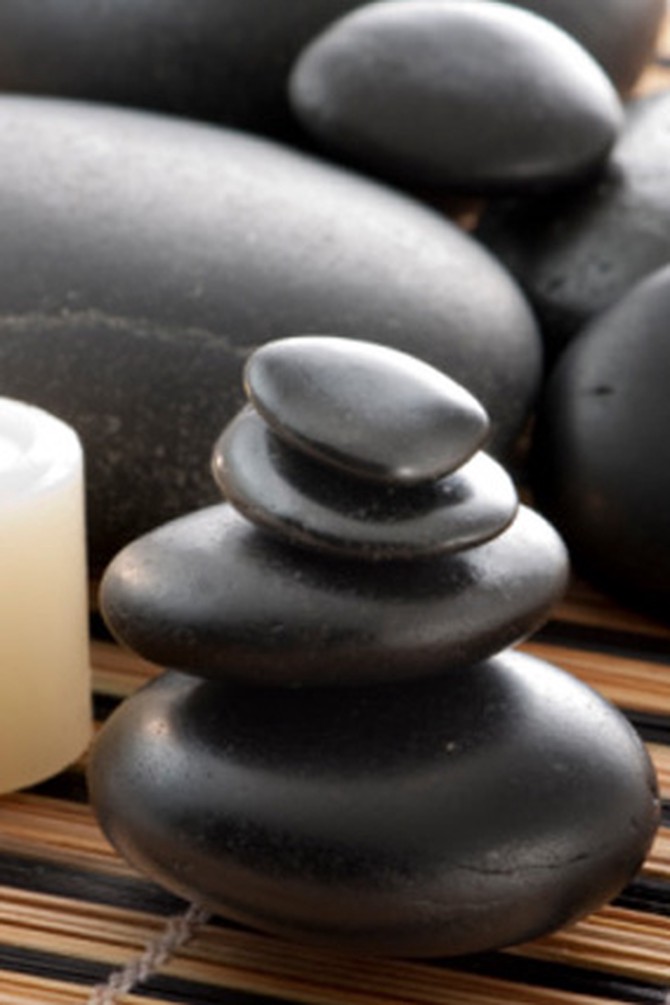
Photo: Thinkstock
Day 10: Meditate
Long embraced for its stress-busting powers, meditation has also been shown to lower blood pressure and bad cholesterol. If sitting solo for five minutes a day seems more baffling than blissful, use these tools to strengthen your om.
How to Meditate (Sounds True): On five CDs, renowned meditation teacher and Buddhist nun Pema Chödrön shares hours of information and guided meditations that develop your skills, as well as tips for silencing distractions.
Insight Timer: The app's chime notifications make closed-eye meditation easier (no need to check the clock), while a world map connects you with a community of users meditating at the same time.
A Mindfulness-Based Stress Reduction Workbook (New Harbinger): Perfect for beginners, this step-by-step guide is loaded with exercises and space for recording daily reflections. Your initial ranking of life's stressors becomes a reference for measuring your progress.
How to Meditate (Sounds True): On five CDs, renowned meditation teacher and Buddhist nun Pema Chödrön shares hours of information and guided meditations that develop your skills, as well as tips for silencing distractions.
Insight Timer: The app's chime notifications make closed-eye meditation easier (no need to check the clock), while a world map connects you with a community of users meditating at the same time.
A Mindfulness-Based Stress Reduction Workbook (New Harbinger): Perfect for beginners, this step-by-step guide is loaded with exercises and space for recording daily reflections. Your initial ranking of life's stressors becomes a reference for measuring your progress.

Photo: Thinkstock
Day 11: Don't Graze Before Bed
People who eat at night gain three and a half more pounds a year, on average, than those who don't, according to one study. Both body and mind stand to benefit from an earlier meal: Eating 70 minutes to two hours prior to bedtime could decrease your risk of stroke by 76 percent. One possible explanation: Blood sugar, cholesterol, and circulation changes brought on by the digestive process may disrupt blood flow to the brain.
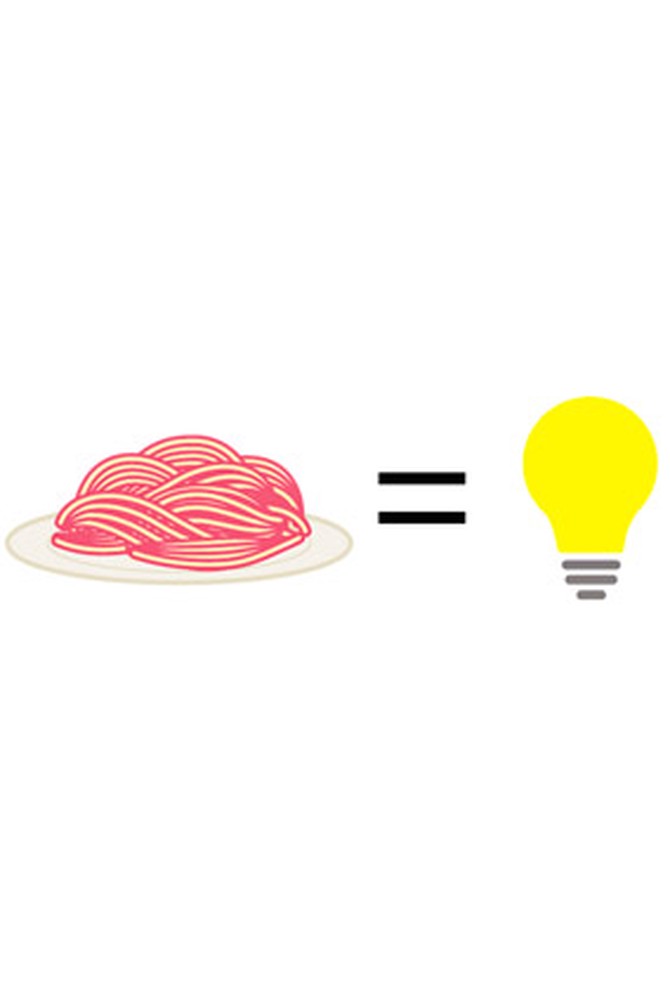
Ilustration: mckibillo
Day 12: Know Your Portions
In America we love big houses, big cars, and, maybe most of all, big meals. But you can break the overeating habit by learning to recognize proper serving sizes. Here's a cheat sheet to help you remember how much to put on your plate.
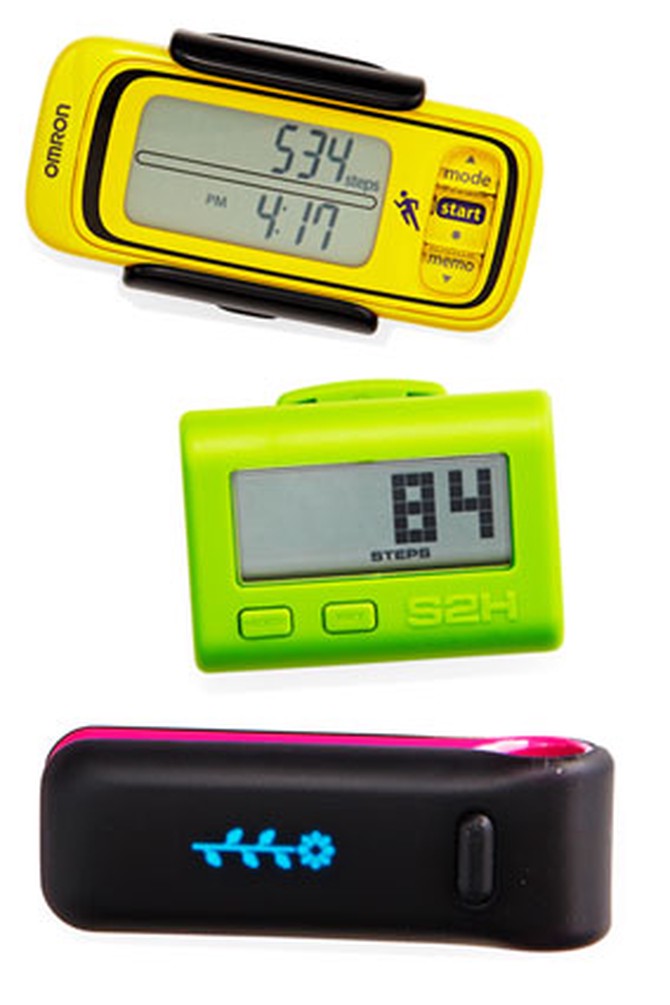
Photo: Nigel Cox
Day 13: Count Your Paces
Taking 10,000 steps a day is associated with everything from a slimmer frame to better blood pressure levels to increased insulin sensitivity. Yet the average American woman walks a paltry 4,912 steps a day. The easiest way to see how you measure up—and nudge yourself toward that 10,000-step goal—is by clipping on a pedometer. I found three that can help you hit your stride....
If you like data: fitbit
Wirelessly sync your pedometer with your computer to chart and graph every step taken and calorie burned on its robust site—and compare your data to other demographics. ($100; fitbit.com)
If you like simplicity: Omron
Long the gold standard for accuracy, Omron is the pedometer favored by Oprah's trainer, Bob Greene. Intuitive buttons and a large display make the HJA-301 model easy to use, and its memory lets you store a week's worth of data. ($40; omronwebstore.com)
If you like rewards: S2H Step
Hit 10,000 steps and you'll get a code to swap for points online. Rack up enough points and you can redeem them for a rotating list of prizes, like gift cards to Sears, Target, and Lowe's. ($25; s2h.com)
If you like data: fitbit
Wirelessly sync your pedometer with your computer to chart and graph every step taken and calorie burned on its robust site—and compare your data to other demographics. ($100; fitbit.com)
If you like simplicity: Omron
Long the gold standard for accuracy, Omron is the pedometer favored by Oprah's trainer, Bob Greene. Intuitive buttons and a large display make the HJA-301 model easy to use, and its memory lets you store a week's worth of data. ($40; omronwebstore.com)
If you like rewards: S2H Step
Hit 10,000 steps and you'll get a code to swap for points online. Rack up enough points and you can redeem them for a rotating list of prizes, like gift cards to Sears, Target, and Lowe's. ($25; s2h.com)

Photo: Thinkstock
Day 14: Interview Your Relatives
Your family history provides hints about what your genes might have in store for you. Talk to your relatives (including cousins, great-uncles, great-aunts) about any serious illnesses they've suffered. The U.S. Surgeon General offers an online tool (familyhistory.hhs.gov) that will compile your notes into a report, which you can then print for your doctor. If any of these issues run in your family, it's never too early to start reducing your risk:
Hypertension
Check your blood pressure every year, and follow your doctor's orders: Even a five-point reduction in your systolic pressure can translate to a 9 percent drop in your risk of coronary heart disease and a 14 percent drop in your risk of dying from stroke.
Breast cancer
The American Institute for Cancer Research estimates that 38 percent of breast cancer cases could be prevented by maintaining a healthy weight, exercising, and drinking less alcohol.
Diabetes
Commit to losing belly fat, a predictor of the disease. For postmenopausal women, strength training is especially important because muscle, which we lose with age, burns more calories than fat.
Hypertension
Check your blood pressure every year, and follow your doctor's orders: Even a five-point reduction in your systolic pressure can translate to a 9 percent drop in your risk of coronary heart disease and a 14 percent drop in your risk of dying from stroke.
Breast cancer
The American Institute for Cancer Research estimates that 38 percent of breast cancer cases could be prevented by maintaining a healthy weight, exercising, and drinking less alcohol.
Diabetes
Commit to losing belly fat, a predictor of the disease. For postmenopausal women, strength training is especially important because muscle, which we lose with age, burns more calories than fat.
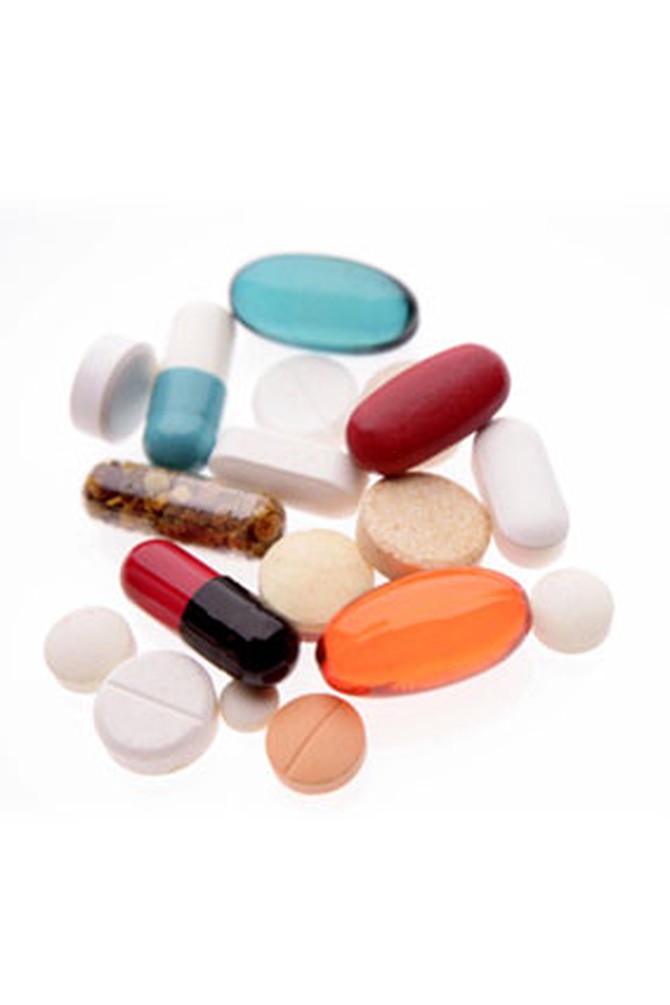
Photo: Thinkstock
Day 15: Take the Right Pills
As you navigate the alphabet soup of the vitamin aisle, pick up these three bottles: a multivitamin, calcium with magnesium, and vitamin D. Then, depending on your health, your genes, and your doctor's advice, you may want to supplement those supplements. Here are 4 questions to shape your shopping list.
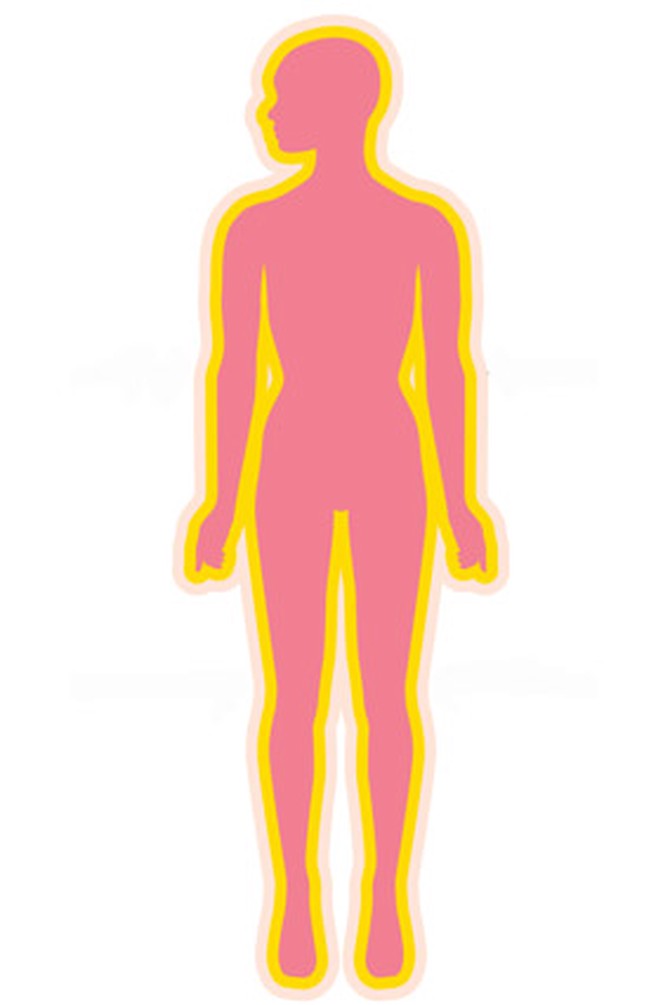
Illustration: mckibillo
Day 16: Calculate Your BMI
Divide your weight in pounds by your height in inches squared. Then multiply that figure by 703.
The result is your body mass index—a rough assessment of how much fat you're carrying on your frame. A BMI between 25 and 29.9 indicates you are overweight; 30 or greater means you are obese. But if your number is over 25, keep in mind this encouraging fact: Dropping just a fraction of your weight can have a dramatic impact on your overall health.
Lose 5 percent of your body weight and you can...
improve your body's ability to use insulin (the hormone that moves glucose into cells to be metabolized), lowering your risk of type 2 diabetes.
Lose 11 percent of your body weight and you can...
significantly lower your blood pressure, reduce your risk of dying from cardiovascular disease by 21 percent, and slash your risk of dying from all causes by 25 percent.
Lose 16 percent of your body weight and you can...
experience a nearly threefold increase in your levels of vitamin D, which may be key to helping prevent everything from migraines to Parkinson's disease.
The result is your body mass index—a rough assessment of how much fat you're carrying on your frame. A BMI between 25 and 29.9 indicates you are overweight; 30 or greater means you are obese. But if your number is over 25, keep in mind this encouraging fact: Dropping just a fraction of your weight can have a dramatic impact on your overall health.
Lose 5 percent of your body weight and you can...
improve your body's ability to use insulin (the hormone that moves glucose into cells to be metabolized), lowering your risk of type 2 diabetes.
Lose 11 percent of your body weight and you can...
significantly lower your blood pressure, reduce your risk of dying from cardiovascular disease by 21 percent, and slash your risk of dying from all causes by 25 percent.
Lose 16 percent of your body weight and you can...
experience a nearly threefold increase in your levels of vitamin D, which may be key to helping prevent everything from migraines to Parkinson's disease.

Photo: Thinkstock
Day 17: Tweak Your Daily Routine
By making these three small substitutions, you'll experience big long-term rewards.
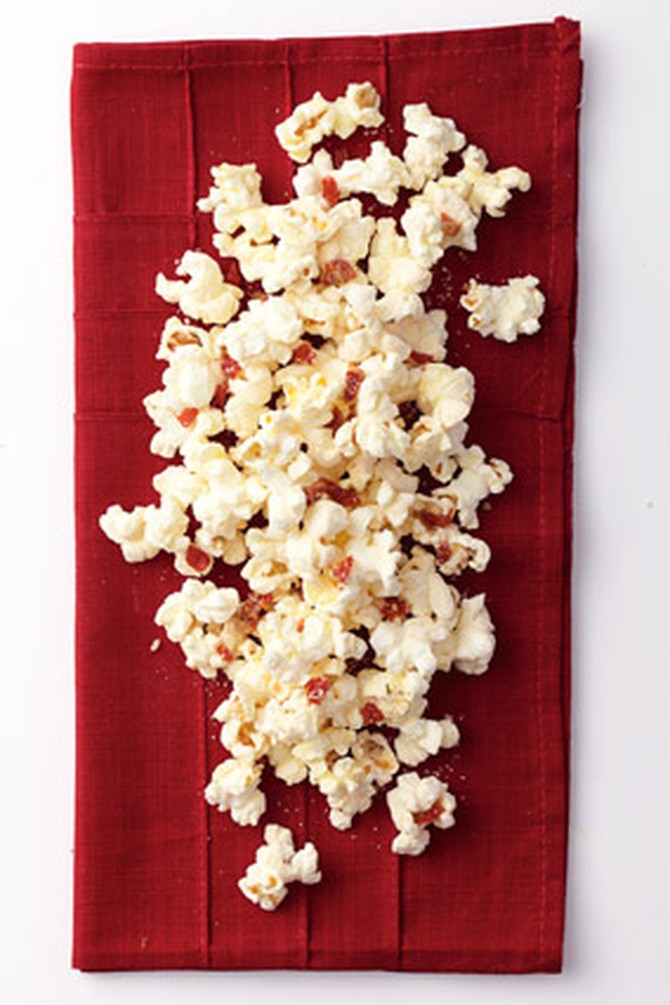
Photo: Lara Robby/Studio D
Day 18: Pass the Popcorn
Here's some math you'll like: For the same number of calories (about 90), you can eat nine potato chips or three cups of air-popped (and fiber-packed) popcorn. Put a quarter cup of kernels in a paper lunch bag and fold over the top. Microwave on high for about two minutes or until the kernels stop popping. Then coat with cooking spray, sprinkle on garlic salt or cinnamon, and voilà—cravings curbed.
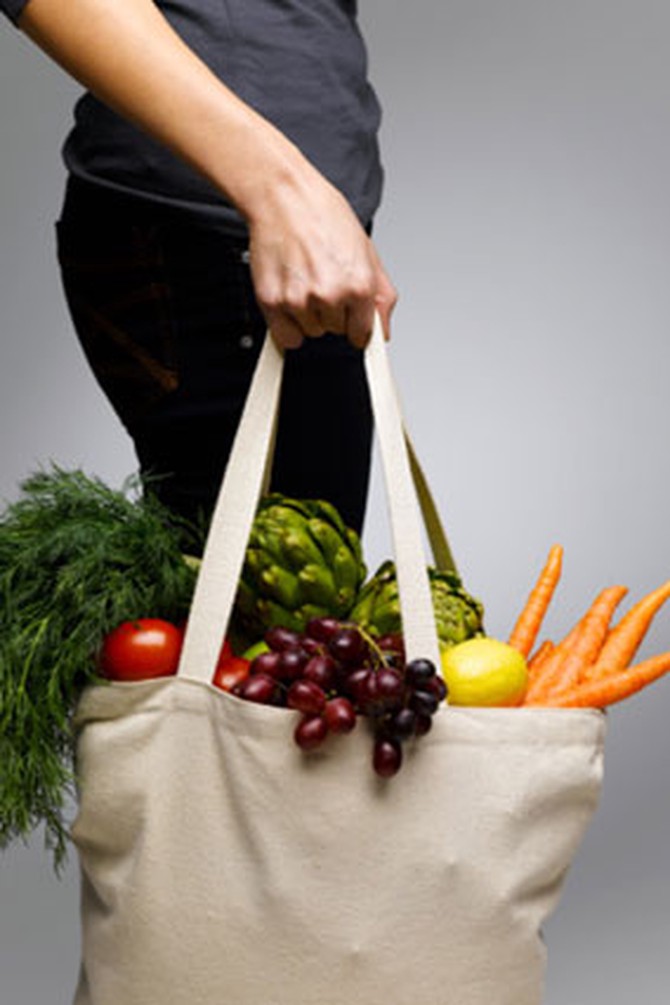
Photo: Thinkstock
Day 19: Pack a Smarter Lunch
Attention, brown baggers: Researchers at Cornell University's Food and Brand Lab have extensively studied our lunching habits. Read their tips on prepping a better midday meal.
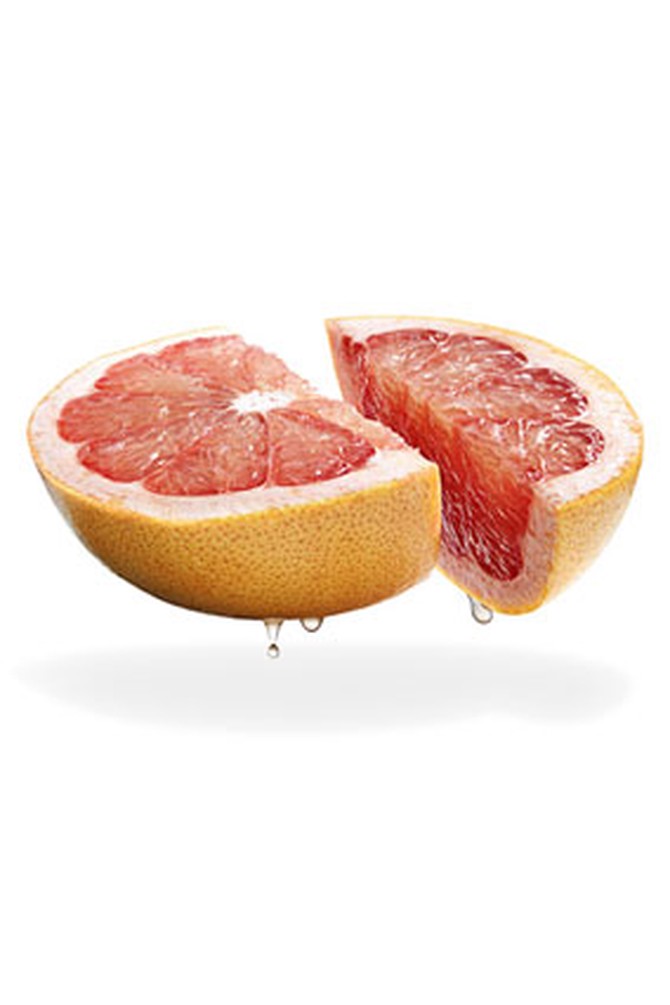
Photo: Nigel Cox
Day 20: Automate Your Breakfast
You already know it's the most important meal of the day. (Skipping breakfast can increase your risk for obesity more than fourfold.) But it turns out that making it the same meal every day is a good idea, too. Research shows that people who've successfully maintained at least a 30-pound weight loss for a year or more tend to consume a diet with limited variety; similar meals over and over may lead them to feel fuller faster and eat less overall. Try making one of these options part of your A.M. ritual.
Grapefruit with Greek yogurt
This combo gives you healthy doses of vitamin C, lycopene (an antioxidant with anticancer benefits), and probiotics—good bacteria that aid in digestion and may boost your immunity.
Get the recipe for a Blueberry and Banana Smoothie
Grapefruit with Greek yogurt
This combo gives you healthy doses of vitamin C, lycopene (an antioxidant with anticancer benefits), and probiotics—good bacteria that aid in digestion and may boost your immunity.
Get the recipe for a Blueberry and Banana Smoothie

Photo: Thinkstock
Day 21: Purge Your Pantry
All you need is an hour and a garbage bag. Check the first three ingredients of all packaged items and toss if any of them are "sugar" or...
End in –ose
These are also added sugars, full of empty calories. (Two exceptions are the naturally occurring sugars lactose, found in milk, and fructose, found in fruit and vegetables.) Make sure you take an especially close look at the labels on low-fat products. Manufacturers often pack these items with added sugars to make up for lost flavor.
End in –ol
These are sugar alcohols, which are chemically different from regular sugars—meaning they can be included in products labeled "sugar-free." But while sugar alcohols are lower in calories gram for gram, they can be just as fattening when consumed in large quantities. They can also lead to bloating and diarrhea.
End in –ose
These are also added sugars, full of empty calories. (Two exceptions are the naturally occurring sugars lactose, found in milk, and fructose, found in fruit and vegetables.) Make sure you take an especially close look at the labels on low-fat products. Manufacturers often pack these items with added sugars to make up for lost flavor.
End in –ol
These are sugar alcohols, which are chemically different from regular sugars—meaning they can be included in products labeled "sugar-free." But while sugar alcohols are lower in calories gram for gram, they can be just as fattening when consumed in large quantities. They can also lead to bloating and diarrhea.
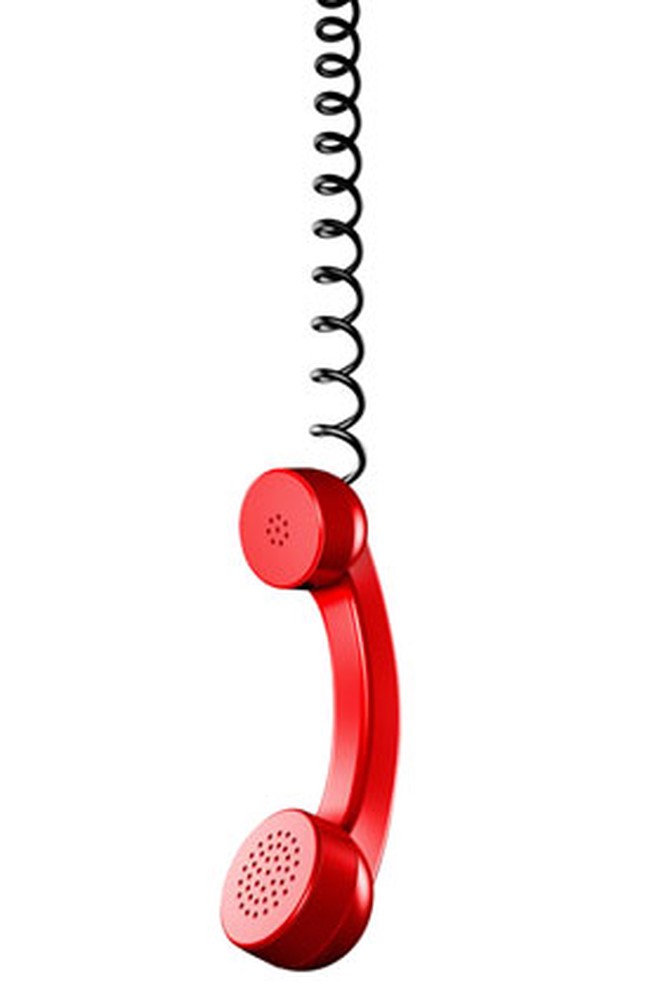
Photo: Nigel Cox
Day 22: Call an Old Friend
A study conducted in the Spanish village of San Pedro Manrique serves as a reminder of the power of connection: During an annual fire-walking ritual, scientists strapped heart-rate monitors on people about to dash across the coals, their friends and relatives, and visiting spectators. Amazingly, the heart rates of the fire walkers and their friends and relatives started to synchronize, rising and falling at almost the same moments. It goes to show that our relationships manifest in more ways than we know. Don't underestimate the impact that you and your loved ones have on each other. Reach out to someone you haven't talked to in a while and spend an hour or two rebuilding your bond.
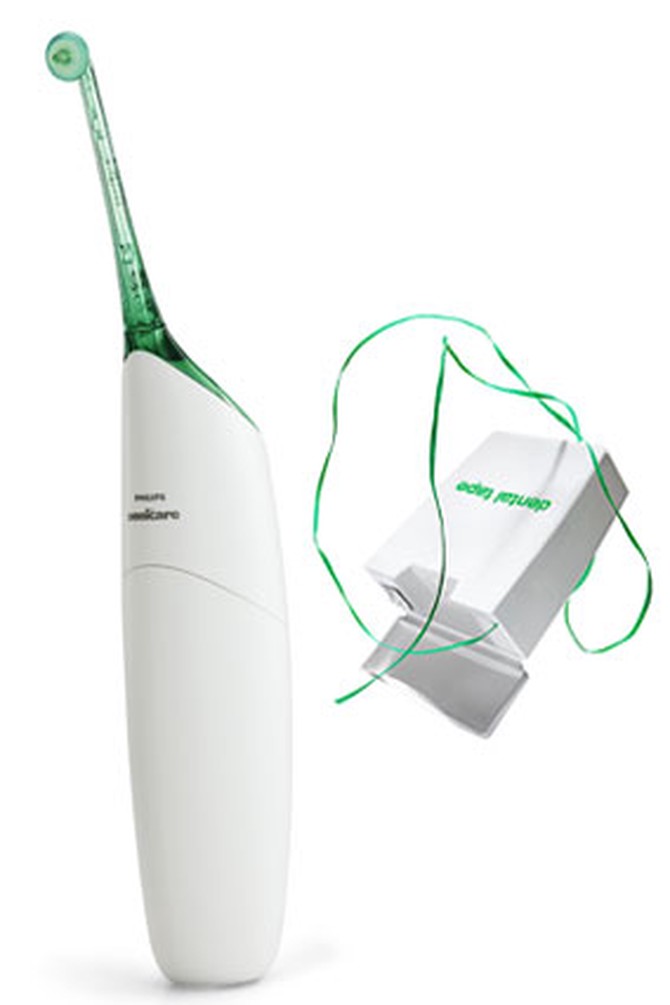
Photo: Nigel Cox
Day 23: Clean to Protect
Not flossing doesn't just spell bad news for your mouth—bacteria there can make it into your bloodstream. Yet only about half of Americans floss regularly, and many of us do it incorrectly. New York prosthodontist Jonathan Levine shows us all the right moves:
1. Wrap 18 inches of floss around your middle fingers. Push the floss through the tight space between two teeth (called the contact).
2. Hook the floss around one tooth in a C shape and slide it under the gum line. Then move it back and forth over the tooth's surface, in a motion similar to shining a shoe.
3. Before you pull the floss back through the contact, slide under the neighboring tooth's gum line and repeat the shoe-shining motion.
Look What We Found!
Nothing trumps manual flossing, but Philips Sonicare AirFloss lets you point and shoot plaque away with minimal effort. To use, fill the side chamber with water or mouthwash, rest the tip between two teeth, and press a button: A microshot of liquid blasts away biofilm, letting you floss your whole mouth in just 60 seconds.
1. Wrap 18 inches of floss around your middle fingers. Push the floss through the tight space between two teeth (called the contact).
2. Hook the floss around one tooth in a C shape and slide it under the gum line. Then move it back and forth over the tooth's surface, in a motion similar to shining a shoe.
3. Before you pull the floss back through the contact, slide under the neighboring tooth's gum line and repeat the shoe-shining motion.
Look What We Found!
Nothing trumps manual flossing, but Philips Sonicare AirFloss lets you point and shoot plaque away with minimal effort. To use, fill the side chamber with water or mouthwash, rest the tip between two teeth, and press a button: A microshot of liquid blasts away biofilm, letting you floss your whole mouth in just 60 seconds.

Photo: Thinkstock
Day 24: Look Before You Flush
Wondering what's really going down in your digestive system? Look no further than your toilet bowl. The size and color of your stool can reveal whether you should make dietary changes (small, hard stools can indicate a lack of fiber) or be checked for a serious illness. Consult your doctor if you see any of the colors listed here.
Color and Possible Condition:
Red Bleeding in the lower gastrointestinal tract; diverticulosis
Green Crohn's disease
Cream Gallbladder dysfunction
White Pancreatitis; pancreatic cancer
Black Bleeding in the upper gastrointestinal tract
Color and Possible Condition:
Red Bleeding in the lower gastrointestinal tract; diverticulosis
Green Crohn's disease
Cream Gallbladder dysfunction
White Pancreatitis; pancreatic cancer
Black Bleeding in the upper gastrointestinal tract

Photo: Thinkstock
Day 25: Practice Saying No
You've heard this a hundred times before—and you just heard Oprah say it to me! But I'm going to tell you again because I believe it is vitally important: No matter how busy you are, you must make time for yourself. If you don't, you'll start to suffer from chronic stress. And chronic stress can lead to an imbalance in your cortisol (a "fight or flight" hormone) levels, which can wreak havoc on your mood and energy. Bottom line: Sometimes you need to say no—to your colleagues, your friends, your family—for the sake of your health.
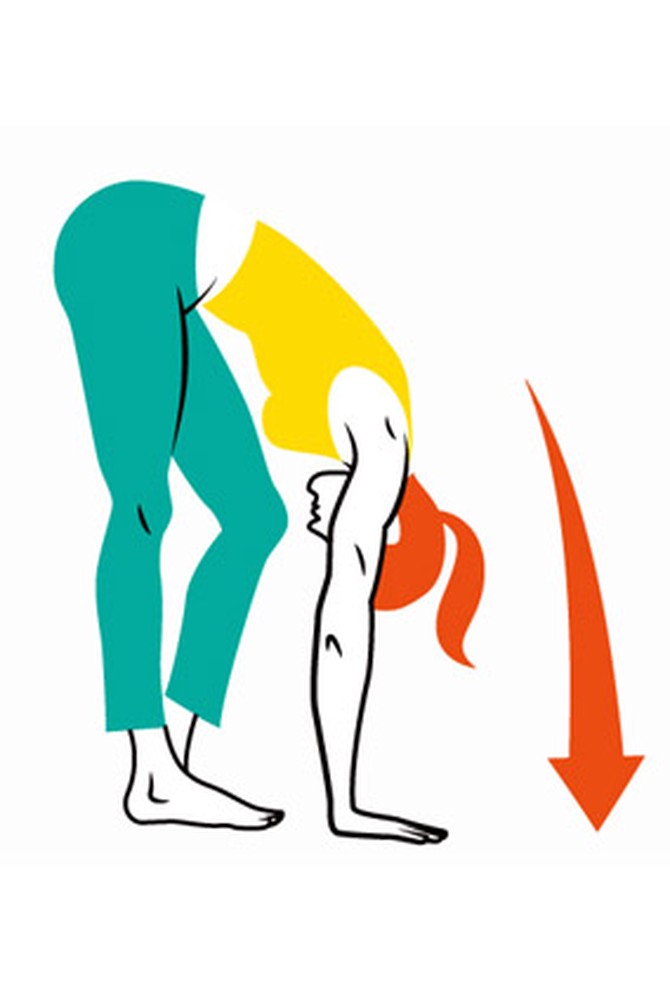
Illustration: mckibillo
Day 26: Stretch!
It will improve your flexibility, of course—but it will also make you stronger. All you need is seven to ten minutes every morning when you get out of bed. You can make up your own routine or use mine. Try Dr. Oz's morning stretching routine.
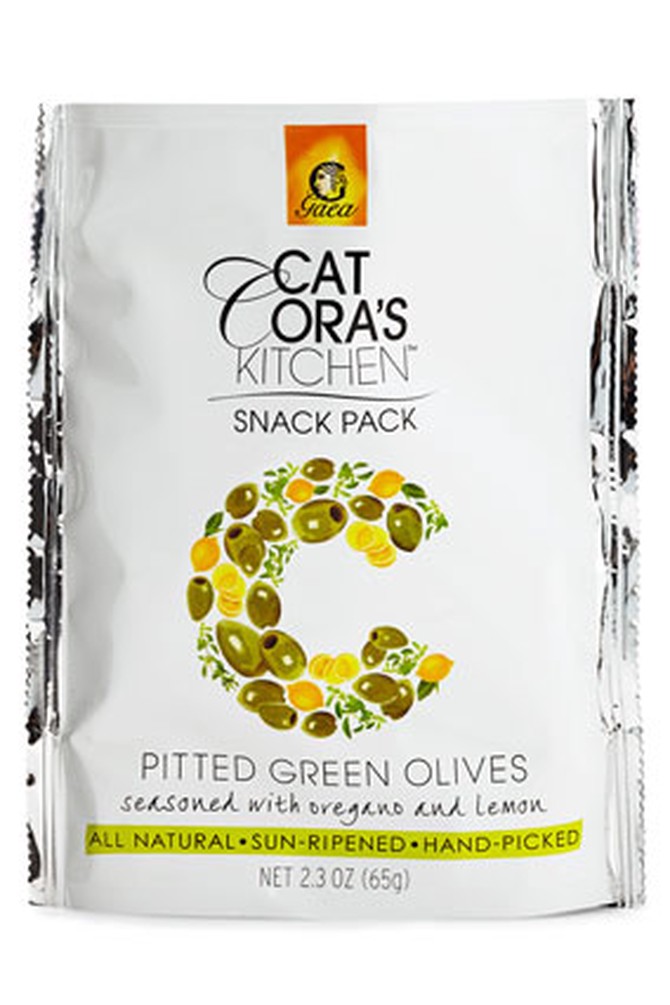
Photo: Nigel Cox
Day 27: Pledge Never to Be Hungry
Trying to find a nutritious snack when you're on the go is setting yourself up for failure. Instead, I make it a point to always travel with an arsenal of satisfying eats. See 6 healthy, easy single-serving snacks you can always have at the ready.
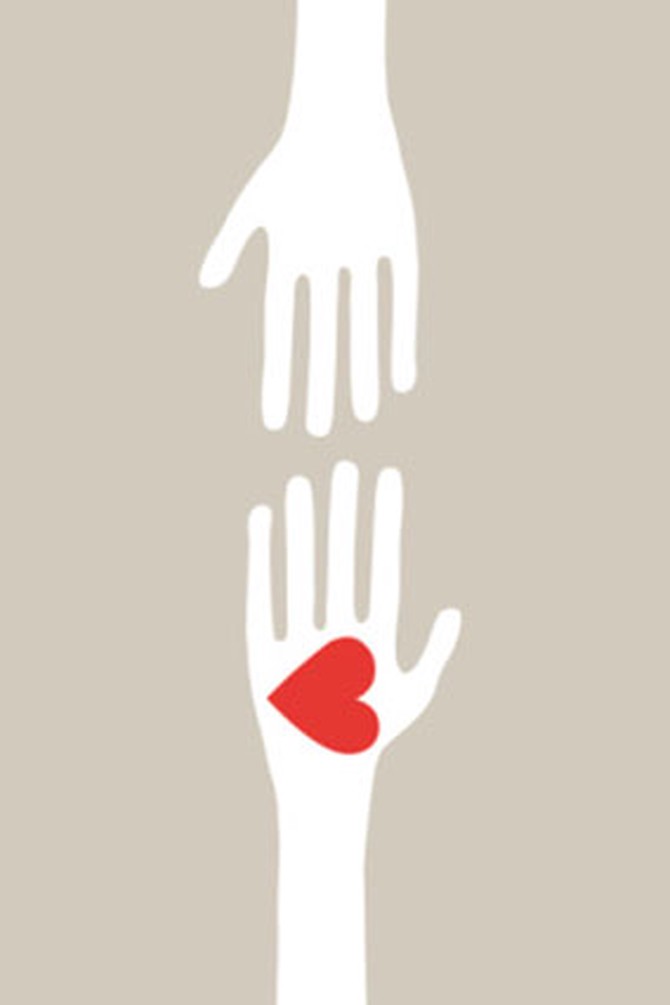
Photo: Thinkstock
Day 28: Spread Kindness
Help a stranger with directions. Hold the elevator doors. Unburden someone struggling to hoist groceries into the car. You know lending a hand can boost your mood, but a recent study out of the University of California, San Diego, suggests that random acts of kindness can also be contagious: When research participants acted cooperatively, in the public good, their positive intention cascaded outward, influencing up to three more degrees of helpful people. And while you can't always linger to see the effects your good deed has on a person, two O readers share what a stranger's kindness meant to them:
"When I was a teenager, I got kicked out of ballet rehearsal for chewing gum. I was moping around the city, killing time until my friends got out, when I passed a homeless man. He reached out his hand, and I assumed he was asking for money—but instead he pointed at me and said, 'Don't worry, sweetie.' That memory always stuck with me, and now I carry loose change for every homeless person I see."
—Jessica Duncan, 25, New York City
"While driving in 2008, I suffered a cerebral stroke and my car crashed into a wall. A woman pulled over and called 911. She opened the door, took my hand, and asked if she could pray for me. An ambulance came shortly after, and I eventually recovered from paralysis. I call that woman my angel. Today I run a foundation that benefits the elderly and the handicapped, because I know how important it is to help those in need."
—Dick Warden, 70, San Diego
Next: Read Oprah's interview with Dr. Oz
"When I was a teenager, I got kicked out of ballet rehearsal for chewing gum. I was moping around the city, killing time until my friends got out, when I passed a homeless man. He reached out his hand, and I assumed he was asking for money—but instead he pointed at me and said, 'Don't worry, sweetie.' That memory always stuck with me, and now I carry loose change for every homeless person I see."
—Jessica Duncan, 25, New York City
"While driving in 2008, I suffered a cerebral stroke and my car crashed into a wall. A woman pulled over and called 911. She opened the door, took my hand, and asked if she could pray for me. An ambulance came shortly after, and I eventually recovered from paralysis. I call that woman my angel. Today I run a foundation that benefits the elderly and the handicapped, because I know how important it is to help those in need."
—Dick Warden, 70, San Diego
Next: Read Oprah's interview with Dr. Oz
From the January 2012 issue of O, The Oprah Magazine

